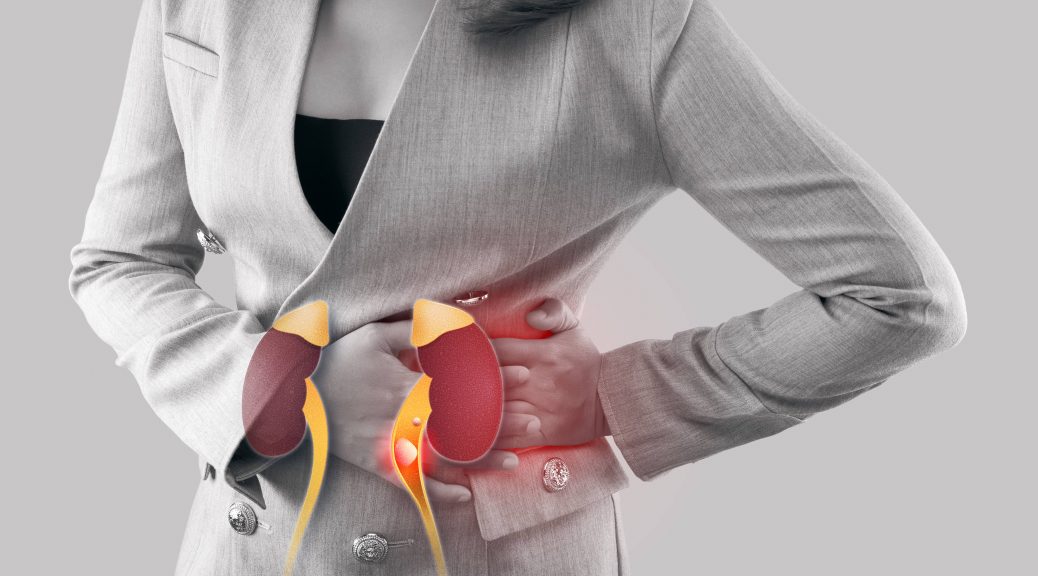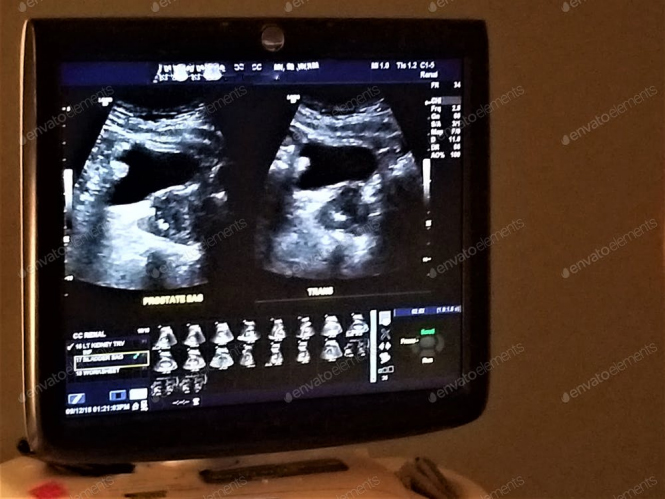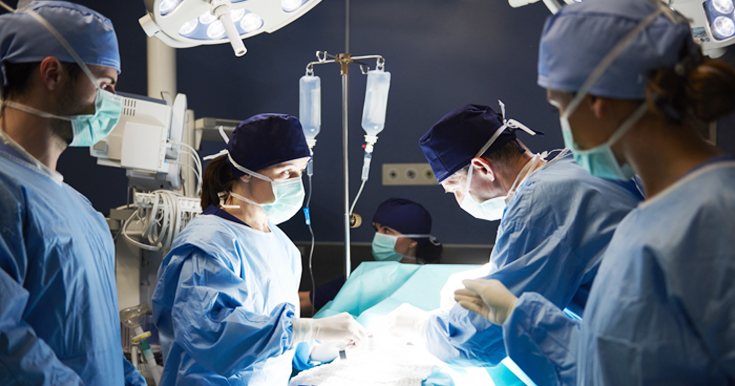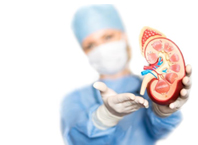9 Myths About Kidney Stones That You Should Know About
Kidney stones have become quite a common medical condition, and millions of people are suffering from them across the globe. Several myths are linked with kidney stones that potentially harm the patient in the long run.
We are about to discuss the 9 common myths associated with kidney stones that should be stopped at once. Moreover, if you feel that you are suffering from kidney stone symptoms, then your first action should be to consult with a doctor. Get the best kidney stone treatment in Kolkata.
What causes Kidney stones?
Before we proceed with the rumors, first get to know what causes kidney stones. Kidney stones can occur due to stress or any kind of treatment. The symptoms usually differ from one person to another, including the pain.
You may experience frequent urination, fever, nausea, cold chills and all of this fluctuate from time to time. Thus, to keep yourself healthy and get proper treatment, it is essential to not hype the myths about kidney stones.
Types of kidney stones
There are four kinds of kidney stones:
- Calcium oxalate stone
- Calcium phosphate stone
- Uric acid stone
- Cystine stones
Myth 1: Avoid calcium to prevent kidney stone
Kidney stones are of several types, and the most common one is calcium oxalate stones which are formed when calcium binds with oxalate. People think that because calcium is associated with the kidney, then by avoiding it, they can prevent kidney stones. However, food that is rich in calcium, such as milk, can actually help to prevent and manage kidney stones. This isn’t true for calcium supplements which should only be consumed after consulting with the doctor
Myth 2: Tea can lead to an increased risk of kidney stone
Yes, it is true that you should avoid black tea, which has high oxalate, while you are suffering from kidney stones to prevent the risk. However, not every kind of tea increases the risk. You can consume green tea, which is quite beneficial during these conditions. Other than that, intake of herbal tea and milk tea can also reduce the oxalate content in your body.
Myth 3: Beer can help to pass the kidney stone
Drinking beer can trigger urination, but it has no link with kidney stones. Many think that urination can help pass down small kidney stones, but any alcoholic beverage is not good for the kidney. Because, it might lead to a dehydrating effect which increases the risk of the patient during kidney stone disease. Moreover, some beers also have high oxalate content, which increases the risk of kidney stones, so you should avoid it.
Myth 4: Cranberry juice can reduce kidney stone
Cranberry is often thought to be an ideal herbal remedy for treating kidney stones. However, even if it is true, cranberry juice can keep your kidney healthy and treat urinary tract infections. But, when you are diagnosed with kidney stones, then you must avoid cranberries because they have high oxalate content. Thus, if you are diagnosed with calcium oxide stones, then it is better to avoid cranberry juice. Also, get an appointment of the best kidney stone treatment in Kolkata.
Myth 5: Kidney stone leads to intense pain always
Kidney stones, if ignored for a long time, can lead to painful experiences, especially if the stones are large, it can block the urine. However, not kidney stones are not painful at the early stage. Rather than pain, you can experience sudden symptoms, such as difficulty urinating, discomfort near the lower back, or blood in the urine. This is the time when you should get checked by a medical professional.
Myth 6: Drinking soda causes kidney stone
When you have kidney stones, there are certain restrictions on food and beverages. However, no evidence exists that drinking soda or any specific food can cause stones. But, it’s true that drinking soda is not a healthy option. During kidney stone disease, your body already has high sugar content, so if you are thinking of drinking soda, then try to avoid the ones that contain phosphoric acid.
Myth 7: Every kidney stone treatment requires medical procedure
If your kidney stone is detected to be large, then only you need to undergo surgery or treatment such as shockwave lithotripsy. This helps to pass down the stones on their own. Other than this, you might have to make certain changes in your diet, along with the intake of proper medication. So, based on the latest update, about 10 to 20% of kidney stone conditions require surgery; others can be cured through medication.
Myth 8: Kidney stone feels like having a stomach ache
Usually, the person having kidney stones can feel a range of sensations, starting from throbbing to contraction. It is not at all like any other stomach pain that you might get from menstrual cramps or during child labor.
Myth 9: Milk causes kidney stones
Milk is one of the best sources of calcium, and on the other hand, kidney stones are formed of calcium oxalate. So, most people relate that milk can cause kidney stones, which is totally a wrong idea. Because kidney stones are actually caused due to lack of calcium. So, adding at least one glass of milk or yogurt to your daily diet is always advised to reduce the chances of kidney stones. Along with that, you can also consume magnesium to help prevent kidney stones.
Ways to prevent kidney
- Drink as much fluid as you can in the entire day. It is usually recommended to drink 8 glasses which would help to increase the urine output and also dilute the urine. Thus, preventing the accumulation of oxalates which in turn prevents the formation of kidney stones.
- Keep a healthy gut microbiome, as it can keep your GI tract in proper condition. You can optimize the gut microbiome by eating healthy foods such as fiber, fruits, and vegetables. You can also include yogurt or fermented food in your diet.
- Keep a balanced diet, eat more fruits and vegetables and try to avoid junk food. There are certain fruits and vegetables that can help to reduce the risk of major kidney stone formation. If you have any other health conditions, such as diabetes, high blood pressure, or suffering from heart disease, then you must consult with the dietitian and get a personalized diet chart. This would prevent the formation of stones in the long run.
Conclusion
These are the common myths that have made things complicated for both the patient and the doctor. If you feel any other symptoms that are associated with kidney stones, as mentioned above, then you must immediately consult with the doctor. Usually, the symptoms and the recurrence of kidney stones differ from one individual’s health condition to another.
Thus, long-term changes in your lifestyle are required to prevent and manage kidney stones. Also, try not to pay attention to the myths. Rather consult with certified and experienced doctors at ILS Hospitals for the best kidney stone treatment in Kolkata.
7 Symptoms of Kidney Infection & Disease You Must Know About
Infections are a clear sign that bacteria or virus has made their way into your body. Kidney infections are quite serious and require prompt treatment. Otherwise, it can lead to permanent damage.
Kidney infection is also known as pyelonephritis, and it is an advanced stage of urinary tract infection. The bladder is affected, and then it tends to travel to one or both of your kidneys.
You might need to intake antibiotics to prevent the infection from spreading into the bloodstream. Eventually, this can become life straightening.
Now, UTI is not the only way through which your kidney infections occur. And, there could be other possible reasons as well. You can get a kidney infection during surgery, and in this case, the lower urinary tract remains affected.
In general, kidney infections are quite painful to bear, and it has a high possibility of leading to sepsis. And, this has the possibility of damaging the body’s vital organs.
So, how can you detect a kidney infection?
The clear signs and symptoms of kidney infections
It would help if you read the signs to understand the underlying problem:
- Fever
- Pain in the lower region of the back
- Nausea and vomiting
- Pelvic pain
- Smelly and cloudy urine
- Blood traces in the urine
- Frequent and painful urination
However, people above 65 years old might not experience all the symptoms, and rather they undergo – hallucinations, confusion and difficulty in speaking.
Causes of kidney infection
Bacteria have a 90% chance of leading to kidney infection through the intestine, skin surface, bladder or ureters. The kidney’s function is to eliminate all the potential bacteria from the body and all the toxic fluids. But, during this process, abnormalities can occur, and if the bacterial rate is quite high, it leads to infections.
Other than that, the kidney fails to flush out harmful bacteria due to kidney stones, enlarged prostate and urine reflux. If the infection is spreading from your bloodstream, you might have undergone surgery recently. In this case, the kidneys become a secondarily infected organ, and the primary infection lies somewhere else.
Factors responsible for increasing the kidney infection
Being pregnant
In pregnancy, the uterus gets enlarged, which squeezes the uterus, reducing the flow of urine. Thus, it makes it easy for the bacteria to infect the kidney.
Urine flow
It is essential to clear the toxicity as it accumulates in your bladder from time to time. Now, if there is any barrier and the urine cannot flow at a regular rate, it can lead to infections. Usually, the blockage occurs due to enlarged prostate or kidney stones.
High medications
A high dosage of medications tends to weaken the immune system. Diseases such as diabetes and cancer require high doses of antibiotics, and thus, it increases the chances of infections.
Filtration rate
As the filtration rate reduces, it increases the chances of bacterial multiplication within the body. Thus, infections become prominent. Further, kidney infections can lead to other problems, such as high blood pressure, kidney failure, blood infection etc.
Diagnosis of kidney infection
A physical examination is done as you report the symptoms and a blood test to understand the category of bacteria in the urinary tract. Image tests, such as ultrasound, follow this, and CT scan to detect the abnormalities in the kidney or blood. The patient is put under medications and antibiotics. Usually, a complex infection takes a month to resolve.
Conclusion
To prevent infections, you must change your lifestyle. Start by drinking water throughout the day. Take control measures to avoid the risk of UTI. Do not use any chemical products to clean the genitals and seek help advice from the doctors without any delay. At ILS Hospitals, you get to meet the best specialist for treatment.
How Alcohol Can Affect The Kidneys
Drinking one or two glasses occasionally is not going to affect your kidney. But, if you are a regular drinker, it can lead to severe implications. Heavy drinkers can face acute kidney failure, which can advance to chronic kidney damage.
Basically, the function of the kidney is to filter out toxic elements from your body. Its job is to maintain the pH level, produce hormones, and keep the body hydrated. But, when drinking becomes an addiction, it generates kidney diseases.
The recent data helps reveal that after consuming any alcoholic beverage, the blood pressure remains high. People also report kidney pain in the backside, which slowly progresses towards the spine, under the rib. It can get intensified, thus hindering your daily work.
Chances of developing Kidney disease due to alcohol consumption
Having more than two to five glasses of alcohol every day is another way of abusing your kidney. It can lead to –
Acute kidney disease
Alcohol is considered a harmful substance by your kidney, and it has to work harder 2x to get it out of your blood. Along with that, the kidney’s normal function is disrupted, and the filtrate rate reduces. This indirectly affects the body’s hydration level and becomes extremely dehydrated, which further affects the normal function of the organs.
You may notice specific symptoms such as exhaustion, swollen legs and face, nausea, severe chest pain, difficulty breathing, etc. It is essential to get the treatment at the right moment, or else it can lead to serious damage. Often, prolonged acute kidney disease can lead to a chronic kidney condition.
Chronic kidney disease
When talking about alcohol and its effect on kidneys, it is important to understand the amount of alcohol consumed daily. One drink of alcohol equals 12 ounces of beer and one glass of wine. So, if you are drinking heavily, it can block kidney function and lead to acute kidney failure.
Treatment is possible nowadays, but it takes a long time, and often the damage is permanent. If you do not keep the alcohol amount in check, it can lead to chronic kidney damage. And, if you are also a smoker, then the damage level will become 3x. In this case, it can become life-threatening, and the only treatment is either dialysis or a kidney transplant.
UTI (Urinary Tract Infection)
If you tend to develop a UTI, then alcohol can spread the infection to the bladder, which affects the kidney. In these situations consuming alcohol decreases the pH level making the urine acidic, which severely affects the lining of the bladder, leading to kidney damage.
The general symptoms are painful urination, dark and smelly urine, blood in urine, fever and frequent urge to urinate.
High Blood Pressure
Patients with high blood pressure are usually recommended not to drink alcohol as it not only affects the kidney. Also, it disrupts the health balance. According to recent statistics, high blood pressure diseases tend to develop more in drinkers than in non-drinkers.
Along with that, alcohol can also affect certain medications which are prescribed for high blood pressure treatment.
Conclusion
If you consider drinking a part of your lifestyle, you need to check on alcohol consumption. For a man, seven glasses per week and eight glasses per week are the limits for a woman. Yes, indeed, alcohol does not cause all types of kidney pain, but it has the possibility of intensifying any existing kidney disease.
If you have a kidney stone, alcohol consumption can lead to a severe infection or block it, which becomes life-threatening. If any of the situations bother you, then you need immediate treatment. Get the best treatment at ILS Hospitals with state-of-art emergency care.
The Global Role of Kidney Transplantation
Organ transplant is a significant advancement in modern medical science, with about 15,3863 organs being transplanted globally in 2019. And, the kidney is the most commonly transplanted organ, followed by the liver and heart. The number of successful kidney transplants being performed is steadily accelerating every year.
World Kidney Day on 8 March makes the life-changing potential of kidney transplantation. From a global perspective, the most significant numbers of transplants are performed in the USA, Brazil, China, and India. If you are suffering from any ailment, consult with a specialist about a kidney transplant in Kolkata.
Kidney Transplant is a Global Success
With the advent of modern technology, the transplantation cost has been reduced. Not only high-income families but even middle-income families can opt for kidney transplants without having to break the bank, and it has the potential to provide high-quality life years to patients.
Who is recommended to undergo kidney transplantation?
Patients with incurable kidney failure or end-stage renal disease (ESRD) are suggested to undergo kidney transplantation to lead a normal life. Basically, our kidney is made up of nephrons whose sole purpose is to eliminate harmful waste products from the body. But, the kidney might lose its ability to filter due to various diseases. When the kidney loses 90% of its functioning ability, this stage is termed end-stage kidney disease.
The conditions of the kidneys that may result in ESRD are:
- Recurring urinary infections
- Kidney failure due to diabetes
- Polycystic kidney disease
- Inherited disorders
- Glomerulonephritis
- Obstructions
- Hemolytic uremic syndrome
- Affected immune system
- Congenital defects within the kidneys
What is a kidney transplant?
A kidney transplant is a surgery where a diseased kidney is replaced with a healthy kidney either from a donor or cadaver. The first stage is to detect a healthy and good match who can be the donor, usually family members that include the first degree of relation. Consult with a specialist before opting for a kidney transplant in Kolkata.
Can you live with one kidney?
A person with ESRD mostly gets just 1 kidney as a replacement. And, it is quite rare to get 2 kidneys. But, the fact is that you can live a healthy life with just one healthy and functional kidney. And, even the people who donate a kidney can live a healthy life.
Is there any risk?
People suffering from kidney ailment eventually develop long term or short term problems. So, even after the transplant, there is a possibility that the patient might suffer from mild high blood pressure, proteinuria, fluid retention, etc.
As with the kidney transplant in Kolkata is quite complications, major to minor complications can arise, such as:
- Bleeding
- Infection
- Blockage of the blood vessels
- Leakage of urine
Chances of the new kidney being rejected!
The new kidney may get rejected, and it is quite normal. Our body has its in-built mechanism to deal with foreign objects or tissue. If the immune system recognizes the newly transplanted kidney as a threat, it can attack the new organ. Thus, medicines are recommended to fool the immune system and help it accept the transplanted organ.
Are you eligible?
If you suffer from malignant cancer, auto-immune diseases, severe high pressure, and heart problems, these conditions will not improve even after transplantation. Everyone is not a candidate.
So, if you are curious to know – whether you are eligible for an organ transplant or whether the medications can have any side effects, then do consult with your doctor. ILS Hospitals‘ top priorities are patient safety and high-quality medical facilities. Book an appointment to get your exclusive treatment plan.
Diagnosis & Treatment Of Kidney Stone
Kidney stone is a common illness. The question arises of how kidney stones form. Do you know our urine consists of salts and dissolved minerals? Stones in the kidney form when these minerals and salts exceed their level regarding the normal level they should be. The kidney stones can grow from small pea sizes to larger ones. They fill the hollow interior space of your kidney gradually.
If the stone blocks the ureter, then urine flow stops. An individual can feel tremendous pain in such cases. To avoid such scenarios, you should always go for kidney stone treatment in Kolkata during the initial phase of the illness.
Symptoms Of Kidney Stone
Before rushing for kidney stone treatment in Kolkata, check if you are facing the following symptoms in your body;
- Generally, you will observe a sharp pain arising from your back and spreading to the sides of your body. You can also experience pain in the lower abdominal area.
- Again, you feel a need for urination, but urine flow will be less or blocked.
- A burning sensation whenever you will pass urine.
- You may notice blood, usually dark red or brownish colour coming out through the urine.
- Vomiting tendency with a slight feeling of nausea
- In men, commonly pain is observed on the penis tip.
Diagnosis
Commonly in kidney stones, patients feel pain or can see the blood oozing out with the urine. However, there are cases where the kidney stone is “silent”. In those scenarios, you will not feel or see any symptoms. The health care provider usually does an X-ray to check the size and location of the stones.
Whereas, if you feel pain, then the doctors will suggest you perform a CT scan. It is again to check the stone size and location. This helps the doctor in quick understanding about the kidney stone and start diagnosis.
Treatment
Depending on the stone size, location, and criticality of the stone, the treatment will start. You should always consult the specialist in the kidney stone clinics to start with the treatment.
Zero Treatment Process
If the stone sizes are small, then many times, doctors suggest that it can pass through the urine. Medicines are prescribed to control the pain. You can wait for 2-4 weeks for the entire treatment. It is the simplest form of treatment.
Medicine Treatment
Often your doctors will suggest medicines that can relieve the ureter and help you to pass urine. Again, there are medicines for melting the kidney stone and passing it through the urine. In few cases, your health care provider may give you anti-nausea pills depending on your requirement and stone condition.
Surgery
After the necessary examination of the kidney stone, your doctor will check if you need the surgery or not. In the following scenarios, you may need to go through surgery:
- If the stone size is bigger and growing more in numbers
- Unbearable pain in the abdomen
- Often the stones affect the normal function of the kidney. You may experience a urine infection
Again, at times individuals like to go for surgery even if the size of the kidney stones is small. It is because they feel scared that if the small-sized stone grows big and causes any problem.
Utheroscopy is performed by the doctors while removing stones from the ureter and kidney. For large stone removal, PCNL or Percutaneous nephrolithotomy is done. Again, there are other surgeries as well, like robot or laparoscopy, for treating kidney stones. In severe cases, your doctor might suggest a transplant.
Conclusion
A simple diet change can surely help you to protect your kidney from stone formation. You should include a lot of vegetables and fruits in your diet. Again, you should keep a check on your weight. However, kidney stones can occur at any time. Do not panic. Talk to the specialist for kidney stone treatment in Kolkata at https://www.ilshospitals.com/, and live a healthy life.
Kidney Donation & Transplant in India
In India, about 120 kidney transplant centres are conducting nearly 4000 kidney operations every year. The transplanting of kidneys started in 1970. Since then, India has been a prominent country in this stream of treatment. Initially, during the first ten years, doctors tried to master immune suppression and surgical techniques. It was a great success, and the number of kidney transplants increased.
Organ donation and transplantation became common in later years. Since many illegal organ donations were made, the government approved the Transplantation of Human Organ Act to stop unlawful selling & buying of organs. This act proposed that only deceased donation is legal.
Laws and Rules for Transplanting and Donating Kidney
The government of India passed a new rule along with the main requirements of the Transplantation of Human Organ Act. It includes the following.
1 – Living Donation
The relatives of the patients like father, mother, sister, son, daughter, and spouse can donate a kidney. Likewise, grandparents have also been added to the list in the new publication. It is mandatory to provide the relationship proof of the first relative by undergoing a genetic test or providing legal documents. In case if the donor is not a first relative, you will need special permission from the committee appointed by the government. An interview will also be conducted to prove the purpose.
2 – Brain-Death
There are two certificates to prove brain–death. And the two must be nominated by the proper authority of the government and the doctors. One of the persons nominating the certificate should be a specialised neurologist.
3 – Instruction of transplant activities by creating an AC (Authorization Committee) and AA (Appropriate Authority)
Every state and union territory of India will have these rules. The role of the AC is to control the process of arrangement to favour or reject kidney transplants between the donors and the recipient other than a first-degree relative. One of the main intentions is to assure that the donor is not demoralised for financial consideration to donate a kidney. The Authorization Committee will check the joint application and interview them to content the motive.
Now the removal of the kidney, storing, and transplantation is taken care of by the Appropriate Authority. Every hospital cannot undergo these procedures as it is required for the AA to approve the hospitals. The AA will only allow a hospital to conduct a kidney or any other organ transplantation after a detailed inspection.
The inspection will continue regularly to confirm that the hospital follows the proper standards and quality of kidney transplantation and aftercare. Once the AA is satisfied with the hospital’s facilities, a license will be issued for 5 years and renewed later.
Conclusion
The number of diabetic patients in India is growing drastically, which can result in severe kidney failure. One important thing to do is to try to prevent kidney problems. If a person suffers from kidney failure, it should be diagnosed at an early stage to treat it with medications. You can consult top nephrologists for a kidney transplant in Kolkata India, in case of failure.
The Transplant Registry Records says that more than 2.5 lakh people suffer from the last stage of kidney failure. A few of them undergo dialysis, and some are under heavy medications. If the deceased donation rate increases, it will help a lot of patients suffering from kidney failures. For further inquiries and assistance, you can visit https://www.ilshospitals.com/.
Kidney Stones – Various Types of Kidney Stones
The Kidneys play a vital function in the body as it purifies the blood and creates urine. Kidney stones are hard particles accumulated over time. According to doctors, there are mainly four types of kidney stones. Let’s understand each of these in details.
Calcium stones- Most of the kidney stones are made up of calcium component, particularly the calcium oxalate and calcium phosphate along with traces of other minerals. Presence of high level of oxalate also contributes towards the formation of calcium kidney stones. Any episode of hyperparathyroidism elevates the risk of developing calcium stones in the future.

Use of certain medication may prevent calcium kidney stones.
Struvite stones– Some of the kidney stones are made up of struvite. It can occur in both kidney and urinary tract. If it’s left untreated for a long time, it grows larger in size, which is also known as staghorn calculi. Apart from causing kidney stones, it can also lead to urinary tract infection.

As it can get bigger in size with time due to accumulate, it is considered as a serious health crisis. It can also cause infection. The medical treatment includes antibiotics; and if nothing significantly changes for better, then it has to be removed by surgical intervention. Women are more susceptible to develop a UTI and struvite stones as compared to men.
Uric acid stones- Some kidney stones are comprised of uric acid. Uric acid is a waste product produced by the body. Usually it passes through the body before eliminating as waste, but if this passage gets interrupted, then it accumulates to form stones.

Usually certain medications are used to dissolve these stones to prevent its further formation. People who are more likely to suffer from uric acid kidney stones are as follows-
- Having low urine as output
- Consuming a diet rich in animal protein
- Significant increase in alcohol consumption
- Medical conditions such as inflammatory bowel disease and Gout
Cysteine stones- Less common type of kidney stones are comprised of cysteine. It is a chemical substance present in urine in traces. But the individuals who possess a high concentration of cysteine in the urine are likely to develop this kind of kidney stone in the future.

Certain medicines can be used to prevent it from occurring, in case it has already been formed, use of medication may dissolve it. However, if it causes blockage in the urinary tract, it has to be removed by surgery.




















